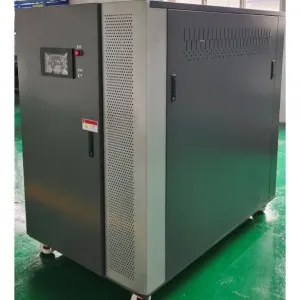සැප්. . 13, 2024 13:48 Back to list
cast aluminum heat exchanger
Cast Aluminum Heat Exchangers Efficiency and Application
Cast aluminum heat exchangers are gaining prominence in various industries due to their lightweight nature, excellent thermal conductivity, and corrosion resistance. As the demand for energy-efficient and compact systems rises, these heat exchangers present a viable solution for effective thermal management in diverse applications.
One of the primary advantages of using cast aluminum for heat exchangers lies in its thermal properties. Aluminum has a high thermal conductivity, which facilitates efficient heat transfer between fluids. This characteristic is essential in industries that require quick and effective cooling or heating processes, such as HVAC (Heating, Ventilation, and Air Conditioning), automotive, and industrial manufacturing. The uniform heat distribution achievable with cast aluminum components minimizes thermal stress and enhances system longevity.
The lightweight aspect of cast aluminum is another significant factor that makes it an attractive option. Lightweight materials result in reduced energy consumption during transportation and installation. In automotive applications, for instance, minimizing weight can contribute to fuel efficiency and improved performance. Consequently, cast aluminum heat exchangers are increasingly being favored over traditional materials like copper or steel, especially in modern vehicle designs where weight savings are critical.
cast aluminum heat exchanger

Corrosion resistance is a vital feature of aluminum, particularly in environments exposed to moisture or aggressive chemicals. Cast aluminum heat exchangers often undergo surface treatments or coatings that enhance their durability against corrosion, prolonging their lifespan and reducing maintenance costs. This makes them suitable for a wide range of applications, including marine environments and process industries where fluids may contain corrosive substances.
The casting process itself allows for intricate designs and compact configurations, enabling manufacturers to tailor heat exchangers to specific application requirements. This flexibility opens up possibilities for customized solutions that can maximize performance while minimizing space requirements. Such tailor-made designs can significantly enhance system efficiency, which is crucial in modern industrial and commercial applications.
In conclusion, cast aluminum heat exchangers are emerging as a leading choice for thermal management solutions in various fields. Their combination of lightweight properties, superior thermal conductivity, corrosion resistance, and design flexibility positions them as an ideal option for industries aiming for efficiency and sustainability. As technology continues to advance, the utilization of cast aluminum in heat exchangers is likely to broaden, paving the way for innovative applications that prioritize energy efficiency and environmental responsibility. By investing in these advanced systems, industries can expect not only improved performance but also cost savings and a reduced ecological footprint in their operations.
-
Durable Cast Steel Concrete Pipe Mold Bottom Rings & Base Trays
NewsAug.23,2025
-
Centrifugally Cast Iron Water Main Pipe for Reliable Mains
NewsAug.22,2025
-
Durable Centrifugally Cast Iron Water Main Pipe
NewsAug.11,2025
-
Centrifugally Cast Iron Water Main Pipes for Reliability
NewsAug.10,2025
-
High-Quality Centrifugally Cast Iron Water Main Pipes
NewsAug.09,2025
-
Durable Cast Iron Water Main Pipe & Drainage Solutions
NewsAug.08,2025


